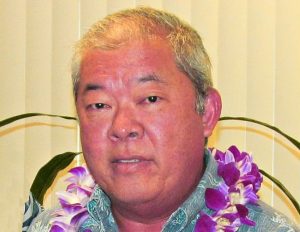Maeda Appointed Hawai‘i State Veterinarian
Isaac Maeda, DVM, has been appointed as the administrator of the Animal Industry Division, which also includes the title of State Veterinarian of the Hawai‘i Department of Agriculture.
Dr. Maeda oversees the Animal Industry Division, which includes the Animal Disease Control Branch, Animal (Rabies) Quarantine Branch, Aquaculture and Livestock Support Services Branch and the Veterinary Laboratory Services Section. His appointment is effective today.
“Dr. Maeda has a proven track record in managing animal disease prevention programs,” said Phyllis Shimabukuro-Geiser, chairperson of the Hawai‘i Board of Agriculture. “I am confident that his knowledge and management skills in handling veterinary issues and concerns will make the division stronger.”
Dr. Maeda has been acting administrator of the division since January 2019. Prior to that, he was the program manager of the Animal Quarantine Branch since 2001. Over the years, Dr. Maeda has directed the development of the five-day-or-less rabies quarantine program, which allows for direct release of dogs and cats at the airport if their owners complete a series of pre-arrival requirements. Prior to heading the rabies quarantine program, Dr. Maeda was a staff veterinarian at the Animal Clinic in Waimalu.
“Hawai‘i maintains disease-free status for many serious animal diseases that are circulating around the world,” said Dr. Maeda. “It is a challenge and our priority to keep these diseases, some of which can be transmitted to humans, from entering our state.”
Besides the day-to-day management of the division, some of the duties of the administrator include implementing and coordinating national disease control, eradication and surveillance programs; collaborating with federal and other state animal health officials to discuss and monitor emerging disease situations and to formulate disease mitigation and response plans; overseeing federal cooperative agreements and funding for disease surveillance programs; and developing strategic plans for the division.














